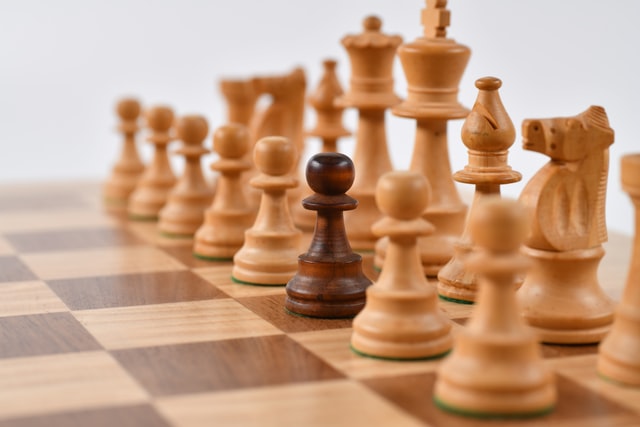It is safe to say that if you are a chess player you are an intelligent breed of humans? Indeed, not many individuals are. Thus, if your answer is no, you truly need to attempt it. All things considered, it is classified as “the game of kings and queens” which is as it should be.
Chess is a tabletop game that has been around for quite a long time. It has to do with the craft of war. It’s about systems, strategies, and the capacity to outsmart your adversary; the last point being to checkmate them (that is, catch their lord). When that occurs, the game is finished, says noted Astro Strategist cum Business Astrologer Hirav Shah.
Hirav Shah, who played a couple of National Tournament of Chess and a very trained chess player, says chess has helped him analyze like a pro. Using Astro’s principles and understanding of goals, his third-person perspective has turned out to be a boon to businesses.
Table of Contents
Hirav Shah explains that chess has been shown to:
- Improve IQ
- Build confidence
- Improve problem-solving skills
- Teach planning and foresight
- Improve concentration
- Exercise both sides of the brain
- Improve memory
- Enhance creativity
It’s quite obvious that these benefits are indispensable when it comes to successfully running a business; especially if you are in a highly competitive market.
What goes on in the game is the perfect metaphor for business competition. In fact, you can learn a thing or two by playing chess. These lessons will prove very useful to you if you are an entrepreneur trying to plant your feet and control a considerable market share. It will surely improve your ability to make sound business decisions.
No wonder you can find a Chessboard in the home or office of top CEOs (Bill Gates, Peter Thiel), world leaders (Barack Obama, Bill Clinton), and even famous TV personalities (Arnold Schwarzenegger, Julia Roberts of Pretty Woman).
It’s very evident that these advantages are basic with regards to effectively maintaining a business; particularly in the event that you are in a profoundly serious market.
Hirav Shah quotes, “Good positions don’t win games, good moves do.”
How does playing chess relate to running a business?
The equals among chess and business are plainly clear. The game is about war; explicitly about ensuring the significant piece (the lord) and beating the rival who’s attempting to overcome you.
There are various procedures for both hostile and guarded play, and the best chess players ought to have insight into both. As a business individual, you need to effectively explore protective and hostile situations in your industry.
On the off chance that you’ve seen individuals play chess, or possibly you play, you’ll notice that the rivals persistently sit tight, study the board, foresee their best course of action, and experience expected situations in their minds. This isn’t so not the same as what is reachable in the business world.
Both depend on SWOT investigation. That is, perceiving your Strengths, Weaknesses, Opportunities, and Threats.
Chess likewise includes an opening, a center game, and an endgame. This is very like the business cycle (extension, pinnacle, compression, and box).
What lessons does chess teach?
To play the game you initially need to dominate the principles, comprehend the players, and eventually, play to win.
Master the rules
Before you can partake, you need to get familiar with the standards. That is likewise the manner in which it is in business. In the event that you hop in without first understanding the elements of how things work, including shopper interest, market guidelines, valuing procedures, and what have you, you are in all probability set out toward disappointment. That is the reason it’s imperative to begin little and develop steadily, growing your span as you get more experienced.
Understand the players
Much the same as in chess, you need to comprehend your opposition on the off chance that you need to prevail in business.
Chess players invest energy concentrating how their rivals think. Along these lines, they can devise countermeasures that will empower them to remain ahead, withstand an assault, and make a counter-assault.
That is by and large what you need to do as a business visionary. Realize what your rivals are doing. Who is right? What are they offering buyers that you are most certainly not? How might you make your items, administrations, and showcasing endeavors better? These and a lot more are significant inquiries you need to pose to yourself.
Play to win
In chess, you need to remember a definitive objective. On the off chance that you play sincerely or surrender at the main indications of difficulty, you will not win. You must be prepared to settle on extreme decisions.
Hirav Shah says, “Daring ideas are like Chessmen moved forward. They may be beaten, but they may start a winning game.”
Coronation Ads
A few groups play moderately. They hold tight close to their pieces and decline to make penances. That is additionally the manner in which it is in business. To accomplish your objectives, you need to remain adaptable. Realize when to make changes, regardless of whether in your item blends, the executives’ strategies, or advertising endeavors.
Always keep your eyes on the big picture.
Try not to race to take any action; there may be a superior one.
Unpracticed players quit looking for a move whenever they’ve found a decent one. They fail to remember there may be a superior one.
In business, you need to settle on sure you settle on decisions dependent on the total arrangement of data from the entire scene. Try not to bounce into the primary alternative that looks great. Think about the entirety of your alternatives
Plan several moves ahead
Chess players plan their moves and think about likely reactions to those moves. Experienced players anticipate pushes a few turns forward. That is the manner by which they figure out how to outsmart their adversary.
This is the thing that you should do as a business visionary. Making a decent gauge is urgent to business achievement.
You additionally need to devise emergency courses of action for circumstances that may emerge later on. “We’ll sort it out when we arrive” may be a dangerous suggestion you will not have the option to manage.
Don’t play the plan; play the board
When playing chess, your rival continually devises measures to sabotage your arrangements.
While it is essential to make arrangements, it’s much more so to realize when to relinquish them or basically adapt.
While you have your business methodologies set up, contenders are additionally applying their own to catch more pieces of the pie than you do. Your point ought not to be to follow an unbending arrangement of plans. What decides your prosperity or disappointment is your capacity to adjust well and on schedule and react viably to counter the thing your rivals are doing.
Know the value of the pieces
Every chess piece has a particular worth. By knowing them, you are more qualified to settle on choices on the best way to put them in all cases.
Also, when you know the estimation of your workers, clients, and partners, it will be simpler to settle on astute choices in regards to work duties, shopper focusing on, and some more.
Manage your resources
To win, figure out how to deal with your assets.
In business, this applies to money. In the event that you run out of money, you are finished. You need to ensure you are not overspending. Each and every cost you make ought to procure a benefit. Nothing ought to be squandered. You likewise need to guarantee you are fund-raising properly as you go. Your costs ought to never surpass your income.
Keep an eye on the clock
“Time is material” – this is a typical saying in chess.
You need to deal with your pieces, yet you likewise need to oversee time.
In a competition setting, the games are planned so you have a restricted period to make various moves.
It doesn’t make any difference on the off chance that you are beating your adversary on the load up when you use up all available time, you lose and your rival takes the game, in spite of the fact that you were excelling on the load up.
To get ready, players go through months or even years retaining likely procedures and moves. Thusly, they can review immediately the move they need to make so they will not invest an excessive amount of energy thinking.
This is the reason it is imperative to plan ahead of time. An astute business person can settle on choices that have all the earmarks of being snappy, however, in actuality, are an aftereffect of long periods of study and readiness.
Make Sacrifices
In chess, you figure out how to make important penances that will give you the high ground, or empower you to catch the ruler (Checkmate!). There are circumstances where you have to bring to the table up a piece with the goal of acquiring a benefit later on.
Learn the value of patience
Before you can assault successfully, you need to set aside some effort to put your pieces in productive positions. An untimely assault may reverse discharge. A similar thought is reachable in business. Try not to take rash actions. Possibly take action when everything is set up. For example, don’t be in a rush to begin a business or dispatch another item prior to directing statistical surveying, regardless of how energized you are about it.
Create a balance between skill and intuition
There’s an equilibrium in chess among instinct and investigation. There is consistently a human component that can’t be supplanted by months or long stretches of study and planning. Chess is a limitless game with a large number of potential moves. Along these lines, it’s impractical to know and plan for each possibility. There are minutes when you need to take an action dependent on instinct.
When a player finds harmony among instinct and expertise, their game improves strikingly. Numerous extraordinary chess players have proven to be the best on various occasions when they went with their gut as opposed to their abilities.
As a business visionary, you need to discover this equilibrium. It is what is the issue here. It is likewise the way to imagination and extraordinary accomplishments and might be the distinction between progress and disappointment. Be it one of a kind promoting efforts, new and extraordinary items and administrations, and different results of instinct.
All in all,
Hirav Shah concludes the discussion by saying, “When the Chess game is over, the Pawn and the King go back to the same box!”
If you want to succeed in business, you have to be ruthless. This is exactly what chess is about.
Hirav Shah adds, “The core elements I have explained- people, strategy, adaptation — are the most crucial skills for every successful entrepreneur. But it would be unfair if I forget to mention one last thing that chess taught me: the importance of taking time for reflection.
It’s in reflection that the brain has time to learn, process new technology and information, form memories, to recognize patterns. The time spent between games is nothing less important than the time spent in them. This is the reason why successful entrepreneurs are not only hard-working people but also avid readers, meditators, craftspeople, and students. They don’t just do the work, they consume time to think about the work and to better themselves as a result. The time you take to reflect on your team and your way forward will pay rich dividends.”




























